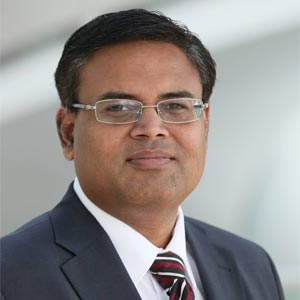THANK YOU FOR SUBSCRIBING
Editor's Pick (1 - 4 of 8)

Health Techs Actively Seek Entrepreneurial Individuals
Johari Masod, Associate Director, Life science, Randstad Singapore


Johari Masod, Associate Director, Life science, Randstad Singapore
Some of the most-watched startups are Biofourmis and UCARE.AI, who use tools like artificial intelligence in a bid to enhance the experience across various aspects for patients, healthcare providers, insurers and companies.
Lagging skills to keep up with business changes and innovations
Despite the booming health-tech startup scene in Singapore, there remains a shortage of skilled talent across the board. Demand for skilled talent in the life sciences industry is rising significantly, exacerbated by the growth in demand for new and innovative healthcare solutions.
Most startups run lean operations. Instead of having a large development team, they typically only have one to two people running the department. Administrative work is also often outsourced to independent agencies. Therefore, it is critical that they hire self-driven and experienced people who can disrupt and drive revenue. Some roles that are highly sought-after by health-tech firms would include R&D specialists, developers, digital marketing and commercial directors, as well as CIOs and CTOs.
These highly-skilled individuals will be responsible for securing funds, developing innovative products that ease consumers’ convenience, and commercializing them to drive revenue.
CIOs and CTOs, in particular, are in high demand. Health-tech startups are looking for senior executives who have worked in global healthcare companies to leverage their established network as well as relevant industry knowledge.
Regardless of position, an entrepreneurial spirit is essential for the startup scene, and talent occupying these roles must keep up with the latest healthcare innovations.
It is not uncommon for health-tech startups to hire from the existing pool of talent who are already working in medtech and tech companies, due to the transferable skills these individuals possess. Despite this, many startups still face manpower challenges in attracting the right talent, usually owing to the relatively higher risks associated with joining one.
There also exists a mismatch between having the flexibility to experiment, but having to do so in a highly regulated environment. This can prove to be a source of frustration for the more established professionals who seek to join a startup because of its exciting and innovative culture.
Managing expectations of what it is like to work for a startup
It is a flight or fight when it comes to having an opportunity to work in a startup. While some people yearn for the feeling of working on something exciting, others are concerned about job security and stability.
The decision of whether to join a startup or not is entirely up to you. It all depends on the stage of life that you are at, how you feel about joining another corporate firm as you advance in your career, or if there are new skills that you would like to learn.
At the end of the day, medtech and health-tech firms of all sizes will be actively courting professionals from the same talent pool. If you think you are entrepreneurial and have new ideas to bring to the table, perhaps it is time to consider a career in a health-tech startup in the new decade.












